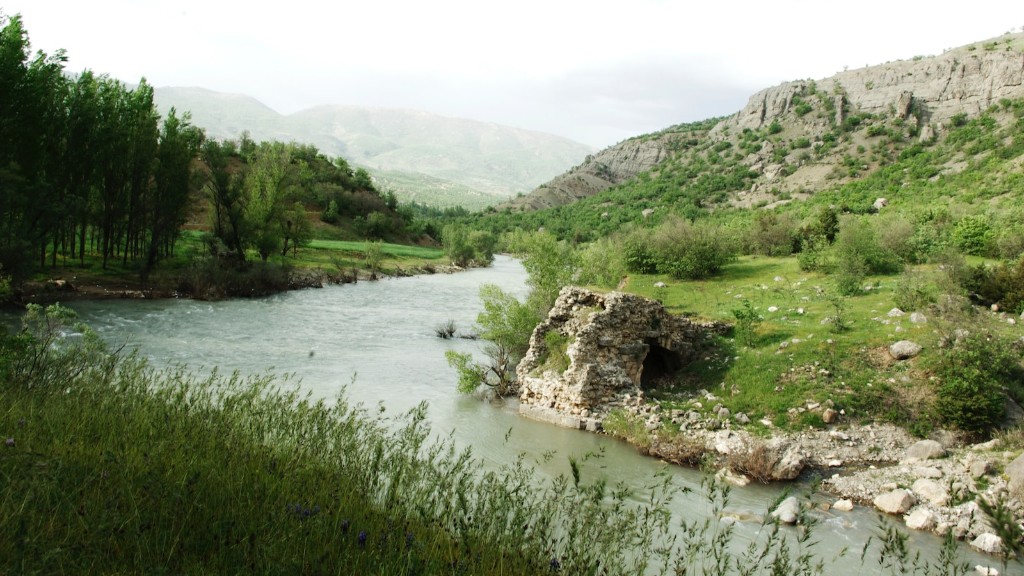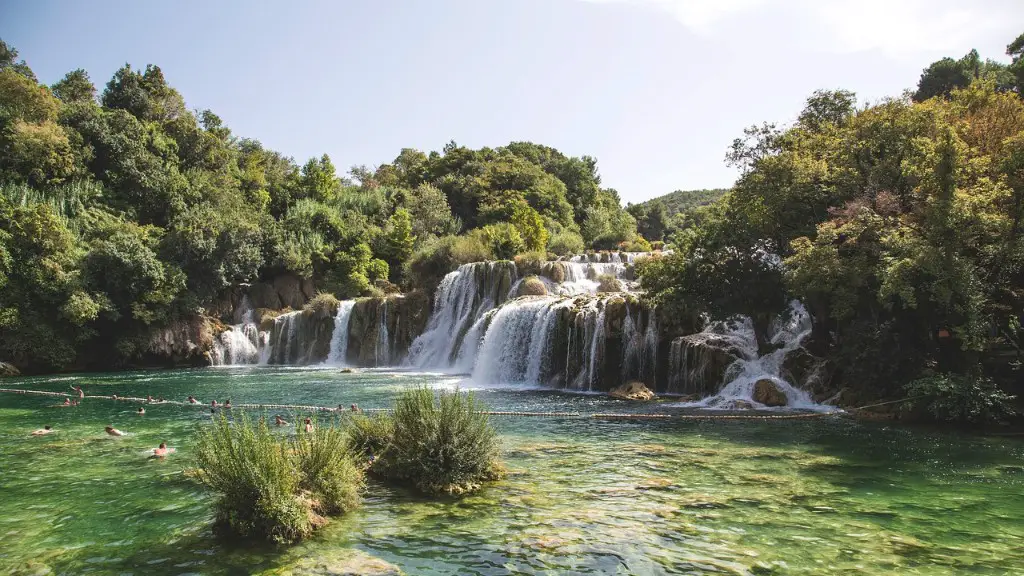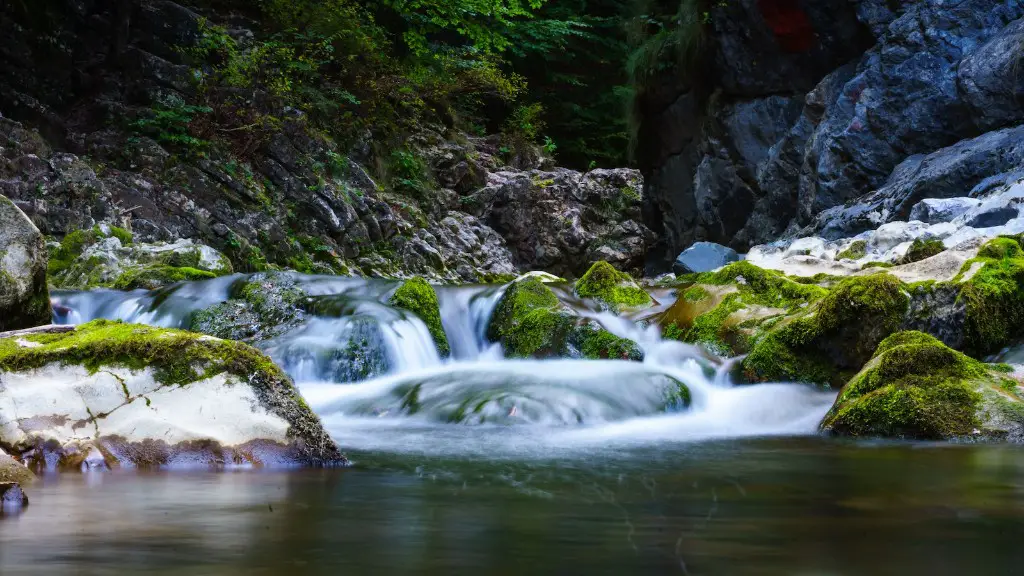Commerce
The Yangtze River is an important trading route in China, and many goods such as food, fuel, and fertilizers are exchanged along its shores. Shipping companies use the Yangtze to transport goods up and down the river, and most Chinese ports and major cities are located adjacent to the Yangtze. It is one of the most heavily trafficked river systems in the world, and a major hub for international trade with the rest of Asia.
The trade on the Yangtze has been increasing rapidly in the last decade, as the Chinese economy continues to develop. Container ships, bulk carriers, and cargo ships are among the most commonly used vessels for transporting goods. The river runs through some of China’s most populated areas and is full of navigational challenges, such as passing through the Three Gorges Dam, one of the world’s largest hydropower projects.
In terms of exports, the Yangtze River Basin exports over $250 billion worth of goods and services in 2020. This makes the Yangtze one of the main export regions in China and one of the largest trading centers in the world. Major trading partners include South Korea, Japan, and the United States.
Transport
The transportation of people and goods along the Yangtze River has been a way of life for centuries. The Yangtze is home to China’s largest inland port, Shanghai, which is the entrance to an extensive network of waterways. In addition, freight goods are moved along the Yangtze River by barge, two-way ferries, and passenger boats. A wide-range of goods and services is shipped through the river, including agricultural products, manufactured items, and construction materials.
The Yangtze River is also home to a number of passenger boats and sightseeing cruises. In the spring and summer months, the majority of vessels operating on the river are tourist boats. It is advised to book as early as possible as the boats can be quite crowded during the peak season. Moreover, the views along the Yangtze River are stunning, with towering gorges, captivating landscapes, and ancient villages.
Recreation
The Yangtze River is a popular destination for tourism and recreation. Offering incredible views and unmatched beauty, the Yangtze has been a highlight on many travelers’ lists of must-see attractions in China. With its stunning gorges, islands, and stunning views, the Yangtze River is a great place to explore natural beauty.
There are numerous popular adventure activities along the Yangtze. One of the most popular activities is river rafting. Rafting on the Yangtze can be experienced at various points along the river, such as the Three Gorges Dam, the Wu Gorge, and the Tu San Gorge.
In addition, there are many angling spots on the river, with the Three Gorges Dam being one of the most popular. There are many species of fish to choose from and the scenery is simply breathtaking.
Food Sources
The Yangtze River provides sustenance for millions of people in China, with the river acting as an important source of food. The river is home to a range of fish varieties, including carp, mullet, catfish, and loaches. These fish species are found in both fresh and saltwater, providing an important source of food for the people of China.
Furthermore, the Yangtze River is a vital source of freshwater to many of the surrounding rural communities. Many subsistence fishermen rely on the river for both food and income. Additionally, the river also provides irrigation for countless acres of farmland.
The Three Gorges Dam is one of the largest hydroelectric projects in the world and has had a tremendous impact on the fisheries in the Yangtze. The dam has caused water levels to fluctuate dangerously, resulting in the displacement of many fish species and the destruction of their habitats.
Tourism
The Yangtze River is a major draw for tourists in China. Boasting incredible vistas and breathtaking landscapes, the Yangtze River is a popular destination for those seeking natural beauty and adventure. There are numerous sights along the river, including the Three Gorges Dam, the Wu Gorge, the Three Gorges Dam Lock, and the Tu San Gorge, as well as many picturesque villages.
The Yangtze River has also become something of a cultural symbol in recent years. The river has been featured in many film and television productions, and its banks are home to many historical sites. It is also an important source of cultural and spiritual enlightenment for many Chinese people.
In addition to its cultural and spiritual connotations, the Yangtze River also plays an important role in Chinese mythology and folklore. It is closely linked with China’s long and enduring history, and it is believed to be home to many mythical creatures, such as the dragon and the tiger.
Environmental Concerns
The Yangtze River has been heavily contaminated by industrial and urban waste. Pollution has been a major issue on the Yangtze for decades, with widespread contamination of drinking water, fish, and vegetation. As more and more people migrate to the banks of the river, the problem has continued to worsen.
The Yangtze River has also been increasingly threatened by climate change. Rising sea levels and extreme weather have put pressure on the Yangtze’s banks, resulting in increased erosion and the potential for flooding. Additionally, the construction of the Three Gorges Dam has caused the riverbank in certain areas to be submerged.
In addition, the Three Gorges Dam has had devastating impacts on nearby ecosystems. Not only has it caused severe damage to the fish populations in the area, but it has also changed the flow of the Yangtze, leading to the destruction of wetlands and wildlife habitats. The Chinese government is currently carrying out a number of initiatives to mitigate these effects.
Economic Impact
The Yangtze River is a major economic driver for the Chinese economy. The majority of the river’s transportation is for commercial purposes and the river is home to numerous commercial ports and other businesses. Shipbuilding, fisheries, and tourism are some of the most important industries along the Yangtze.
In addition to its commercial importance, the Yangtze River provides essential freshwater to rural communities, supplying water to farmlands, fisheries, and other essential needs. The Three Gorges Dam also plays an important role in providing hydroelectricity to the region, helping to power both businesses and homes.
Moreover, the cities along the Yangtze have been developing rapidly in recent years. Many of China’s biggest cities, such as Shanghai and Wuhan, are located along the river’s banks and are becoming important global economic hubs. This rapid growth of development has both social and economic implications for the people of China.
One of the major concerns surrounding the economic development of the region is the displacement of thousands of people from rural villages. These people are being relocated as a result of industrial development, many of them moving to new areas in search of employment opportunities.
Conservation Efforts
In response to the growing environmental and economic threats posed by the Yangtze River, the Chinese government has begun to take action. In the past few years, several initiatives have been implemented to improve water quality and reduce pollution levels in the Yangtze.
One of the main initiatives is the construction of advanced water treatment plants along the river. These plants use advanced filtration technology to reduce the amount of pollutants in the water. Furthermore, the government also has plans to build more hydropower dams to help reduce emissions, although this has had mixed success.
The Chinese government has also implemented a number of policies to promote sustainable development and reduce the impact of climate change. These policies have included planting more trees, installing more efficient irrigation systems, and enforcing stricter regulations on industry along the river.
It is also important to note that the Chinese government has taken measures to protect the river’s cultural and spiritual history. The Yangtze River has a deep and enduring connection to the people of China, and the government is committed to preserving and protecting its heritage.


